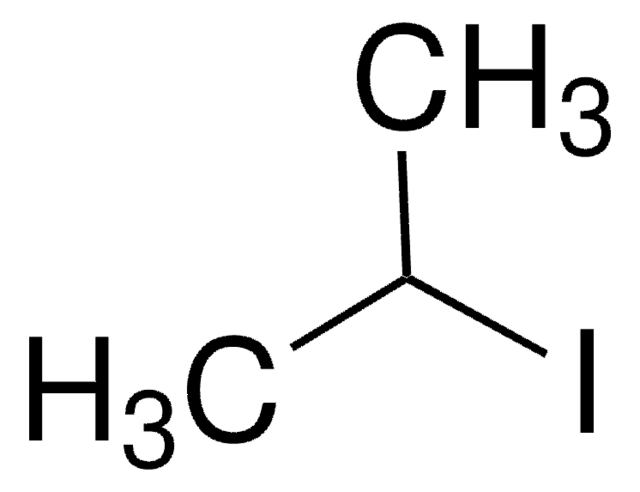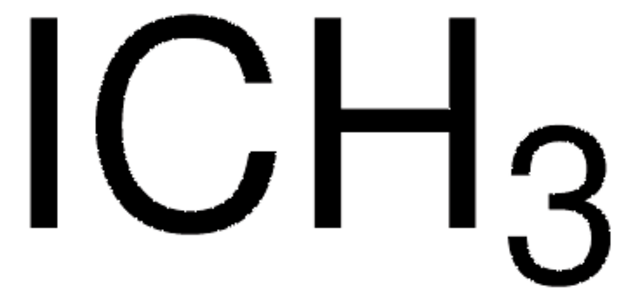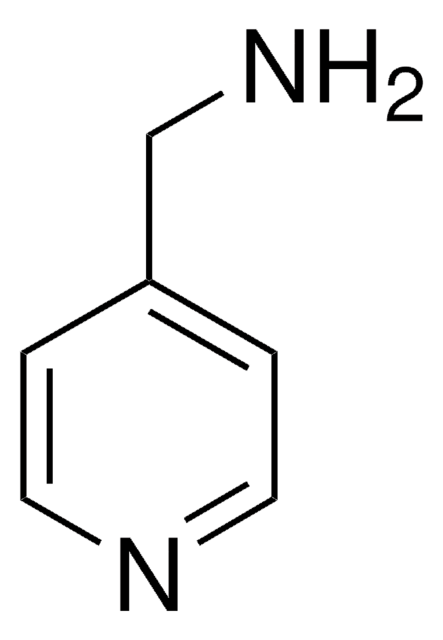248649
Hydriodic acid
contains ≤1.5% hypophosphorous acid as stabilizer, ACS reagent, ≥47.0%
Synonym(s):
Hydriotic acid
About This Item
Recommended Products
grade
ACS reagent
Quality Level
form
liquid
contains
≤1.5% hypophosphorous acid as stabilizer
concentration
≥47.0%
bp
127 °C (lit.)
density
1.5 g/mL at 25 °C
anion traces
bromide, chloride (as Cl-): ≤0.05%
sulfate (SO42-): ≤0.005%
cation traces
Fe: ≤0.001%
heavy metals: ≤0.001%
storage temp.
2-8°C
SMILES string
I
InChI
1S/HI/h1H
InChI key
XMBWDFGMSWQBCA-UHFFFAOYSA-N
Looking for similar products? Visit Product Comparison Guide
Application
- electrophilic hydriodination of alkenes and alkynes
- cleavage of epoxides, ethers, and acetals; conversion of alcohols to iodides
- reducing agent for many groups including quinones, α-diketones, α-ketols, α-halo ketones, α-diazo ketones, and sulfoxides
- reductive cyclization of keto acids
Hydriodic acid (hypophosphorus acid as a stabilizer) can be used for the fabrication of benzylammonium hybrid layered metal-halide perovskites for spintronic and nonlinear optical applications
Signal Word
Danger
Hazard Statements
Precautionary Statements
Hazard Classifications
Aquatic Chronic 2 - Eye Dam. 1 - Met. Corr. 1 - Skin Corr. 1B
Storage Class Code
8B - Non-combustible corrosive hazardous materials
WGK
WGK 1
Flash Point(F)
Not applicable
Flash Point(C)
Not applicable
Certificates of Analysis (COA)
Search for Certificates of Analysis (COA) by entering the products Lot/Batch Number. Lot and Batch Numbers can be found on a product’s label following the words ‘Lot’ or ‘Batch’.
Already Own This Product?
Find documentation for the products that you have recently purchased in the Document Library.
Customers Also Viewed
Our team of scientists has experience in all areas of research including Life Science, Material Science, Chemical Synthesis, Chromatography, Analytical and many others.
Contact Technical Service











